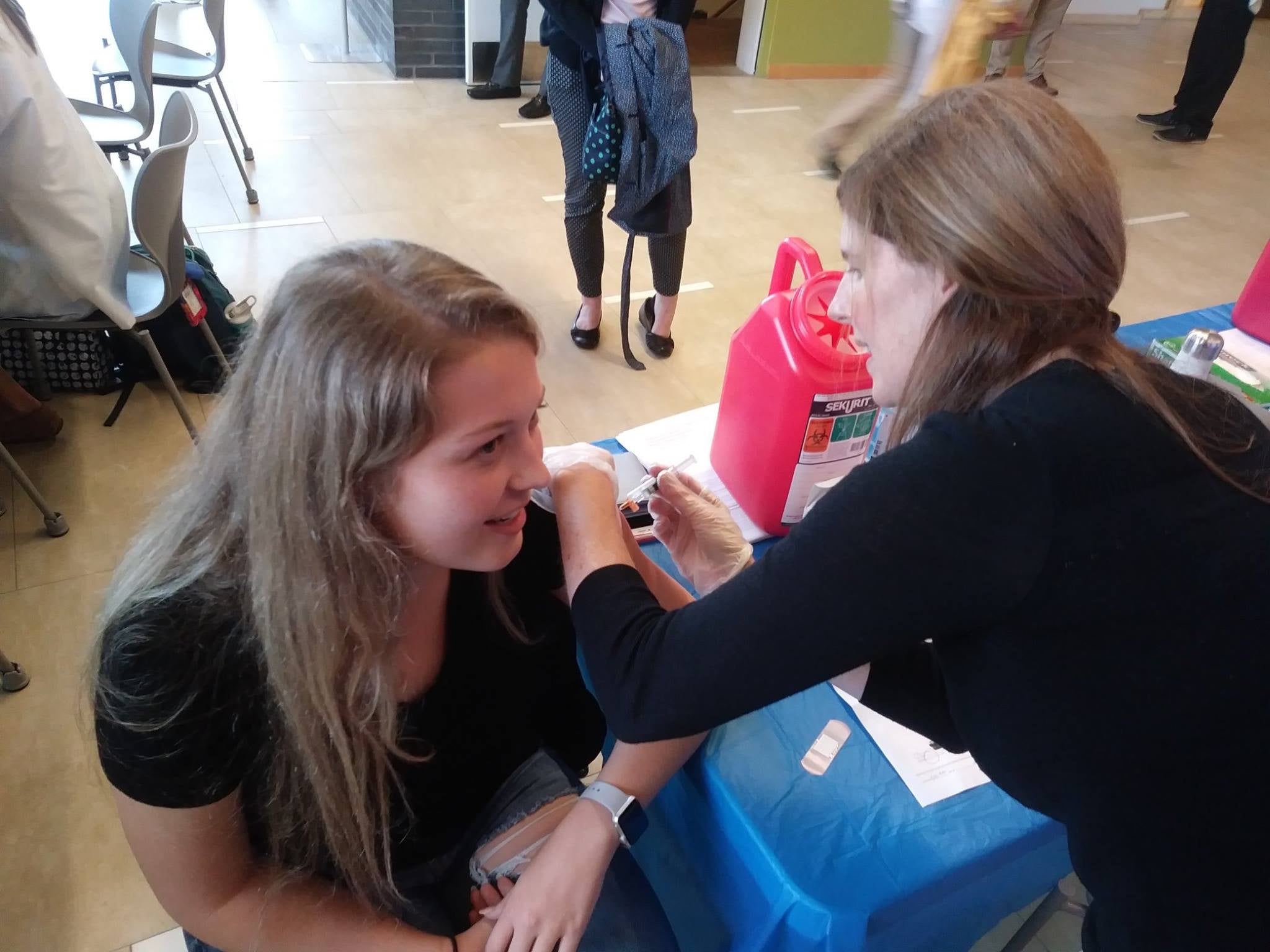Grant to fund vaccination clinic, education campaign on potentially deadly illness
The University of Rhode Island College of Pharmacy will address a serious health concern on college campuses while preparing future pharmacists to help contain a bacterial outbreak, thanks to a grant to expand its “Operation Immunization” program to tackle Meningitis B.
The program recently received a $20,000 award from the NACDS Foundation Scholarship Program, which grants funding to educational institutions “to advance patient care through pharmacy education.” The URI College of Pharmacy received one of just six merit-based, $20,000 awards “to fund patient-centered, community-based coursework or other curriculum innovations.”
The money will be used to establish an education and vaccination campaign to battle meningitis B, a relatively new strain of meningococcal disease that is not covered in typical meningitis vaccinations required by most college campuses. The illness commonly attacks adolescents 16-20 years old, putting college students living in close quarters at particular risk, according to URI pharmacy Clinical Associate Professor Virginia Lemay, principal on the study and leader of the College’s “Operation Immunization.”
“Children are vaccinated against meningitis when they are younger and generally get a booster before they enter college, but there is another strain not covered in the vaccination,” Lemay said. “Most of the outbreaks of meningitis we see on campuses are meningitis B because kids aren’t required to be vaccinated against it. We’re trying to be proactive and prevent an outbreak before it happens.”
Many people aren’t aware of the new strain and their susceptibility to it. Lemay plans to begin the project with an education campaign this fall, including a student survey to determine students’ level of knowledge of the disease. The education campaign will be followed by a vaccination clinic, with participating students receiving the first shot in October and another in November. The clinic is open to all students ages 19-23. College of Pharmacy students will lead the immunization.
“Obviously, we’re first trying to prevent people from getting sick,” Lemay said. “But there’s also a teaching component. We want our pharmacy students providing the shots because that’s what we do. We’re taking care of our own community, and hopefully, that will have a ripple affect across the state.”
First, Lemay is hoping to encourage a ripple affect across the university. She plans a second round of vaccinations in the Spring to inoculate more students, and hopes to encourage university leaders to act. The long-term goal is to generate data that will convince the university admissions office to require meningitis B vaccines for all incoming students.
“Our students here recognize the importance of this; it’s a public health problem,” Lemay said. “Hopefully, this puts it on the RADAR of the admissions office and we can get all students protected.”
Meningococcal disease is a severe, life-threatening illness with a fatality rate as high as 10–20 percent. Among those who survive, a high percentage developing life-altering complications, including amputations and seizures. The bacteria can travel through the air when an infected person coughs or sneezes, putting people living closely together at particular risk. The meningitis vaccine all but wiped out the disease on college campuses until the new strain was discovered. Since 2011, all meningitis outbreaks on campuses have been caused by the B strain.
“While MenB outbreaks are becoming an issue on college campuses, most schools do not require vaccination for admission,” Lemay wrote in her grant proposal. “College students are often unaware there is a separate vaccine for MenB and assume they are protected. These outbreaks could potentially be avoided if institutes of higher learning mandated MenB vaccination for incoming students.”
For more information on the vaccination campaign and to take part, contact Professor Lemay at glemay@uri.edu.

